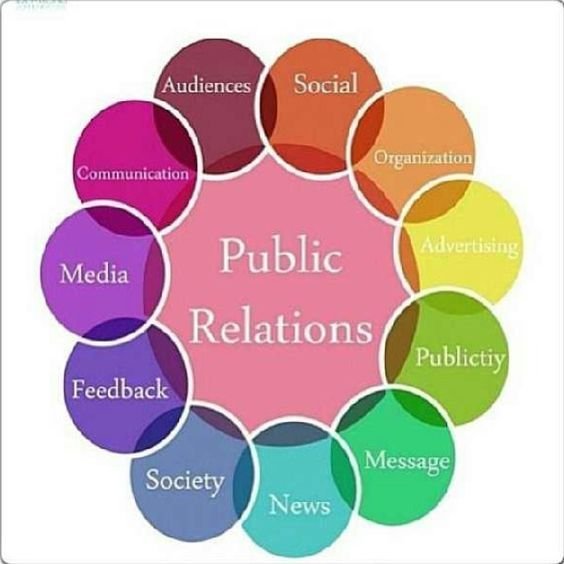PUBLIC RELATION
Public Relation
Public Relations (PR) is the practice of managing and disseminating information from an organization
or individual to the public in order to influence their perception. It is a strategic communication process
that builds mutually beneficial relationships between organizations and their audiences. PR plays a crucial
role in shaping public perception, establishing a positive reputation, and maintaining trust.

Objectives of Public Relations
Improve Public Image: PR aims to create and maintain a positive image for the organization. This involves crafting favorable stories, building trust with stakeholders, and showcasing the company in a good light.
Gain Media Exposure: Media exposure helps organizations reach a broad audience. By getting featured in credible media outlets, companies can increase visibility and establish themselves as leaders in their industry.
Build Brand Loyalty: Effective PR helps build long-term relationships with customers. A consistent and positive image will lead to increased loyalty, as consumers are more likely to support brands they trust.
Manage Reputation: PR is essential in protecting and enhancing a company’s reputation. By monitoring public opinion and addressing any potential issues, PR ensures that the company maintains a positive image over time.
Components of Public Relations
Media Relations: Media relations involve working with journalists and media outlets to gain exposure for the organization or individual. The goal is to get favorable news coverage and manage the narrative that appears in the media. Press releases, interviews, media kits, and press conferences are common tools.
Crisis Management: During a crisis, whether it’s a product recall, legal issue, or negative press, PR professionals work to minimize damage to the organization’s reputation. Crisis management involves developing a communication plan to address concerns, control the narrative, and reassure stakeholders.
Corporate Social Responsibility (CSR): Many companies engage in CSR activities to show that they care about more than just profits. These activities include charitable donations, environmental initiatives, and community involvement. CSR not only contributes to positive public perception but also demonstrates ethical practices.
Reputation Management: PR is responsible for maintaining or improving the reputation of a company or individual. This involves monitoring public opinion, addressing concerns, and proactively creating content that reflects positively on the organization. Reputation management can involve responding to online reviews, customer feedback, and social media interactions.

